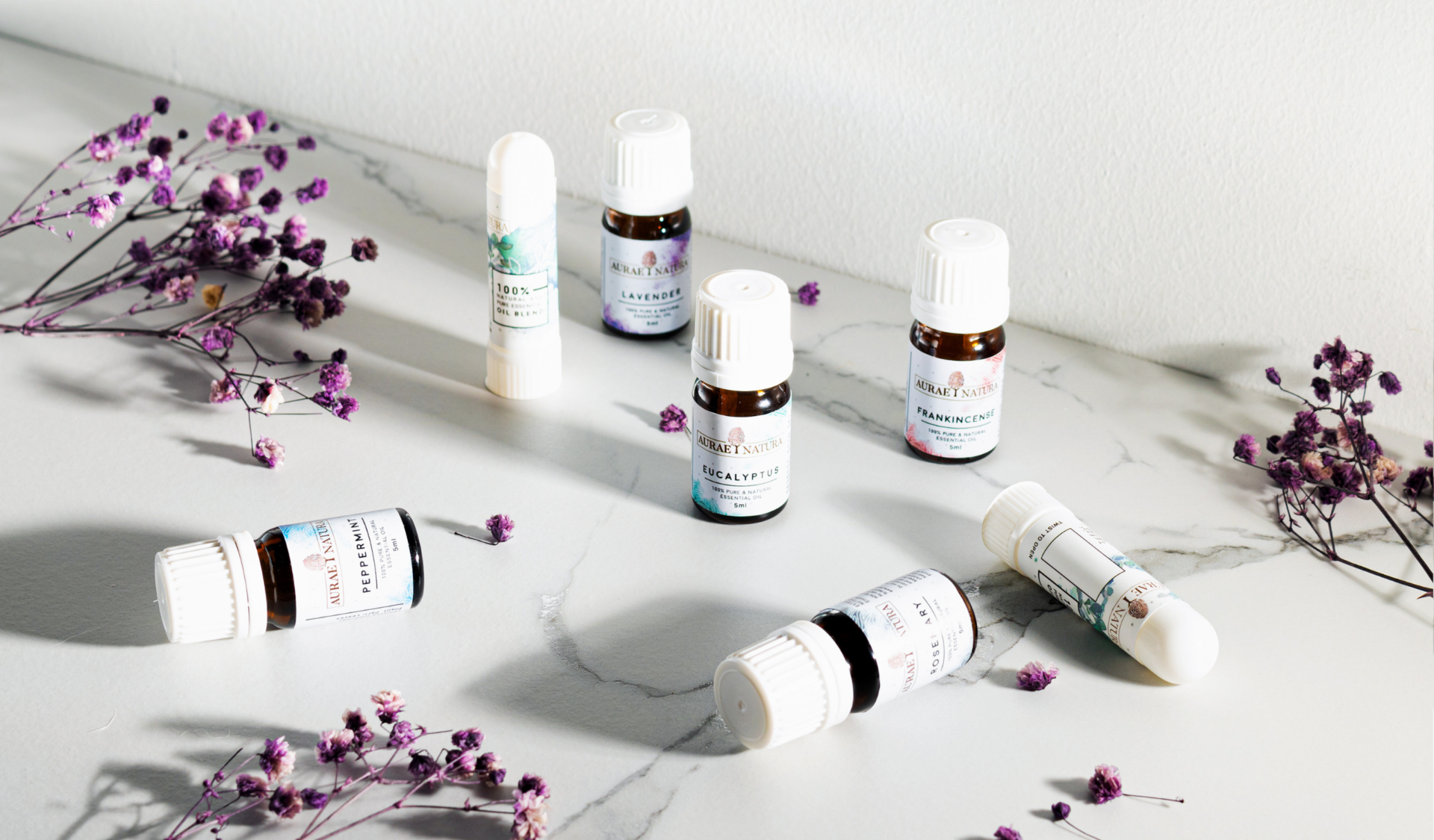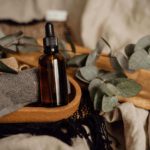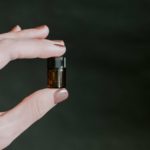A LEARNING GUIDE


YOUR SAFETY IS OUR PRIORITY
With the plethora of ways and context one can use essential oils – from diffusion, inhalation to topical application, from children to adults up to the exposure of our beloved furry friends, this section in the learning guide is intended to give you safety guidelines based on different scenarios.
While it is by no means exhaustive, you can be assured that we will continue to update this section as we continue to study and of course, as you let us know which safety considerations you would like to learn and we would gladly research and write about them for you.
INHALATION & DIFFUSION
In our previous posts, we talked about inhalation as one of the faster routes to introduce essential oils into our system. However, according to Tisserand Institute, it is not advisable to directly and intensively inhale essential oils for longer than 15-20 minutes such as in steam inhalation.
Ambient inhalation however, where the essential oils are vaporized into the air such is diffusing is different. I often get asked if its okay to diffuse essential oils all day continuously while the answer may be case to case because of the many factors like size of room, ventilation and how long one stays inside the room, it makes more sense to diffuse essential oils intermittently (30-60 minutes on, 30-60 minutes off).
According to Tisserand, this is actually both safer and more effective because our bodies habituate to essential oils after a period of time. It is also advisable to get fresh air every now and then as a form of air exchange when you are staying in a room where essential oils are being diffused.
Note: for diffusing around babies and children, refer to section on using essential oils on children safely.
USING ESSENTIAL OILS IN BATH
It is not uncommon to hear others talk about placing essential oils in bath however, it is important to be reminded that oil and water don’t mix which means that placing essential oils neat on bath water without any form of dilution is akin to using it neat on your skin as soon as you step into the bath and risks exposing sensitive areas and potential skin irritation. That said, make sure to use proper dispersants such as foaming products (shampoo, shower gel or bubble bath) or carrier oils before adding essential oils into your bath and bear in mind that the likes of Epsom salts or baking soda don’t actually work as a dispersant because it will dissolve in water while still leaving pure essential oils floating above your bath water.
INGESTING ESSENTIAL OILS
One of the main challenges of getting started with essential oils would be the host of information available. While it’s good to have information available, it gets complicated when the information we get is conflicting. One of the most important lessons I have learned and observe is to err on the side of safety and this is why ingestion is not a route I would recommend when using essential oils unless guided by a qualified practitioner and is absolutely necessary for the condition. But if its simply about wanting your water to have the benefits of lemon in it, then my encouragement is to use real lemon slices instead and not lemon essential oil because of the following unnecessary risks.
- Oil and water don’t mix, so placing it in your drink means the oil would enter your system at full strength
- Ingestion has the potential to cause issues like stomach irritation, build up in liver, etc. and by the time pain is registered, the problem has already progressed far.
Furthermore, in an article by Tisserand Institute it was mentioned that, while citrus juices and citrus essential oils contain very similar volatile compounds, citrus essential oils do not have citric acid. Citric acid is the principal “cleansing” ingredient found in citrus juice which means attributing the same quality to citrus essential oil is mostly nonsense. Not to mention that drinking essential oils in water comes with a very real risk of gastric irritation. So why not stick to using real lemon slices? After all this means you will not only get the benefits of citric acid but get a decent dose of vitamin C too?
All in all, there are so many ways to use and enjoy essential oils safely through inhalation and topically. It seems doing so internally more often than not seems to post unnecessary risks.
USING ESSENTIAL OILS SAFELY AROUND PETS
Similar to using essential oils on children, animal aromatherapy is a different course all together nonetheless below are helpful general safety guidelines when using essential oils around your fur babies.
- Store essential oils in a safe place away from reach of pets
- Do not add essential oils on pet food
- Do not use essential oils directly on your pet’s skin
- When diffusing essential oils around pets, make sure that the area is well-ventilated and that your pet has a way out if he/she wishes to leave the room
- Carefully observe your pet’s reaction around your essential oils when you use them. In case of negative reaction, simply don’t use that specific essential oil around your pets.
- Place your diffuser in a place where your pet cannot knock it over
- For accidental ingestion or spillage of essential oils on your pet’s skin, contact a pet doctor immediately
Finally, it is good to note that you can trust your pet’s instincts in choosing which essential oils are okay for use around them or not. Their nose’s are thousands of times more powerful than ours so they know which aroma works for them or not.
CONTRAINDICATIONS & FLAMMABILITY
If you are pregnant or suffering from any condition like, epilepsy, asthma or even skin conditions that require you to be on a course of treatment with prescribed medication, or if you are in doubt about any condition you may have, our advise is to seek the help of a professional medical practitioner before using pure essential oils.
Essential oils can be flammable and should not be used near naked flames or potential fire hazard. It is nonetheless, non-explosive and can be safely used in a diffuser. Best to be extra careful or avoid using essential oils on burners that are separately lit with candle flame to minimize risk. Nonetheless, fragrant candles where the essential oils are already incorporated in the formulation posts lesser risk.
SHARE THIS





